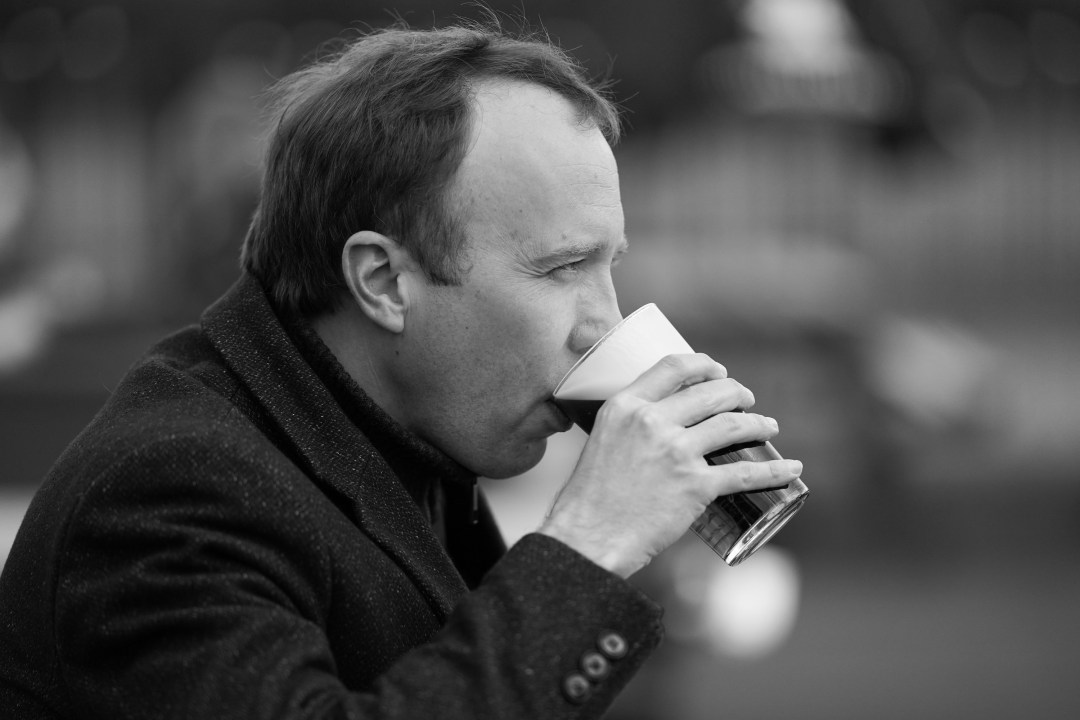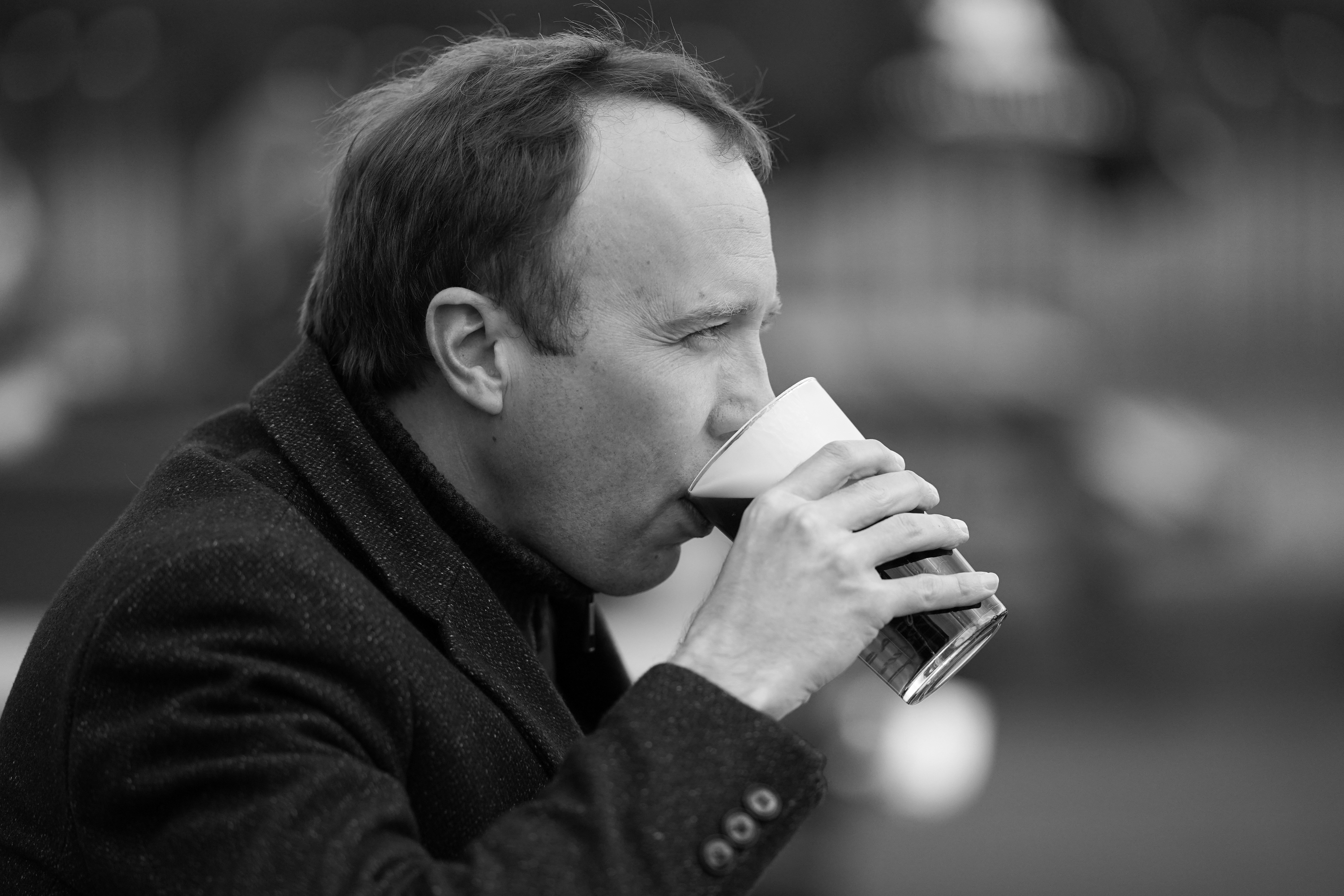Over the past few months, Matt Hancock has been seeking forgiveness for his rule-breaking affair during the pandemic. And the former-health-secretary-turned-reality-TV-star has been pursuing redemption in some strange places. He’s been buried six feet underground with snakes; covered in slime, frogs and spiders; and dared to ask the harshest audience these days – the public – to ‘please forgive me’ in a sit-down interview with the Daily Mail ahead of the release of his new book.
Hancock is not asking, but begging, to be forgiven. And today’s news is certainly his most serious plea to date. Writing to the Prime Minister (and TikToking), Hancock has announced he will be standing down at the next election to discover ‘a whole new world of possibilities.’
Cynics have pointed out that the timing missed Monday’s deadline for standing, perhaps to conveniently time up with the release of his book. I suspect something slightly more gut-wrenching has occurred. Having been transparent about his goals to get back to the top of politics, it seems he’s realised the jig is up. This is the politician who originally thought he could stay on as health secretary after his affair was revealed; who then ran between media studios in a black turtleneck for a while, thinking the coolness factor of this alone might get him back around the cabinet table. Today’s announcement strikes me less as a stunt to sell books, but rather the last phase of grief: acceptance, that the political comeback he wished for is simply not going to happen.
So, is it time to forgive him? Part of me thinks yes.
This is a big shift, I must admit, as someone who fell on the extreme side of the ‘outrage’ spectrum when the lifestyle of the party elite became apparent towards the end of lockdowns last year. The case for forgiveness, however, has very little to do with the specifics of Hancock’s transgressions, but rather the importance of rejecting ‘cancel culture’ altogether. The cancelling phenomenon is a very simple unwillingness on the part of the public sphere to offer up forgiveness or empathy. To make exemptions about who deserves forgiveness, when they are asking for it, is to play into a dangerous culture war which is determined to shut down a battle of ideas and replace it with character smears.
But offering up forgiveness tends to come after a sincere apology. And while the lockdown ringleader has apologised many times now for the timeline of his affair, it has always gone hand-in-hand with excuses. Hancock’s go-to explanation for his actions – ‘I fell in love’ – is not the rousing defence he thinks it is. Lots of people’s feelings fluctuated between radical highs and lows during the three lockdowns imposed by government, designed by Hancock. Yet lots of people still stuck to the rules. And while Hancock may be delighted to have come out of lockdowns in love, that was not a universal experience. Others came out experiencing loss, heartbreak, and depression.
To make exemptions about who deserves forgiveness, when they are asking for it, is to play into a dangerous culture war which is determined to shut down a battle of ideas
This is what makes Hancock’s request for forgiveness seem insincere: his refusal to acknowledge that the laws he imposed were too strict, too punitive, despite having admitted himself that he was not able to follow them.
‘I want forgiveness for the human error I made’ he told the Mail as a part of his forgiveness plea, ‘…but I’m not asking for forgiveness for how I handled the pandemic.’ So Hancock is ‘human’ for acting on his emotions, and the rest of us are… what? Dead inside? Unaffected by the emotional toll of being locked away for months, separated from friends and family? Hancock has all but admitted the rules he put in place were inhumane, but for that he won’t apologise. In fact he insists, still, it was the right thing to do.
Hancock also keeps insisting that he broke ‘guidance’ when he was intimate with Gina Coladangelo, not ‘law’. It’s not that simple. For millions of people who would not have been bubbled (or able to bubble) with their boyfriends, girlfriends and partners, it was illegal to have them round to your home at this time. Intimacy between people living separately was restricted (only available to those behind closed doors in the Department for Health, apparently, under the guise of ‘work’). People didn’t break the rules because they were any less ‘in love’; rather they ran the risk of the law being used against them, the police sent after them, if they dared to go round to a partner’s home, see a friend for coffee in a park or visit their dying parent. Acknowledging this would help bolster Hancock’s apology. Some consistency would go a long way to helping it too.
Imagine if the former health secretary came out and admitted that he was not able to follow the rules he signed off, and in retrospect he understands why others struggled to do so as well. As someone asking for forgiveness, he could come out in support of the people who have had their name dragged to court for a lockdown infraction, thousands of whom are still being processed due to the backlog. He could become the advocate for Jeffrey John Cosgrove, the 53-year-old Liverpudlian who was found guilty by the courts last week – and fined £2,000 – for being away from his address in the first lockdown. Indeed, he could come to the broad defence of more than 100,000 people who received fixed penalty notices during lockdowns. He could insist that ongoing cases be dropped, and fines already paid due to laws under the Coronavirus Act be repealed and refunded.
What an intervention that would be: if the health secretary during the pandemic admitted that the legal aspects of the lockdowns were taken too far; that the decision to forego guidance and voluntary behaviour for policing and penalties was, in retrospect, the wrong one. It won’t happen, because Hancock doesn’t believe this, as his apology has revealed: he is terribly sorry he got caught, but not at all sorry for what he put the rest of us through. And it makes the question of forgiveness far more difficult
But with Hancock’s resignation comes the end of this particular political saga – one that has been living in the nation’s mind rent free for far too long. Regardless of whether you can find it in your heart to forgive, it is almost certainly time to let go and forget.








Comments